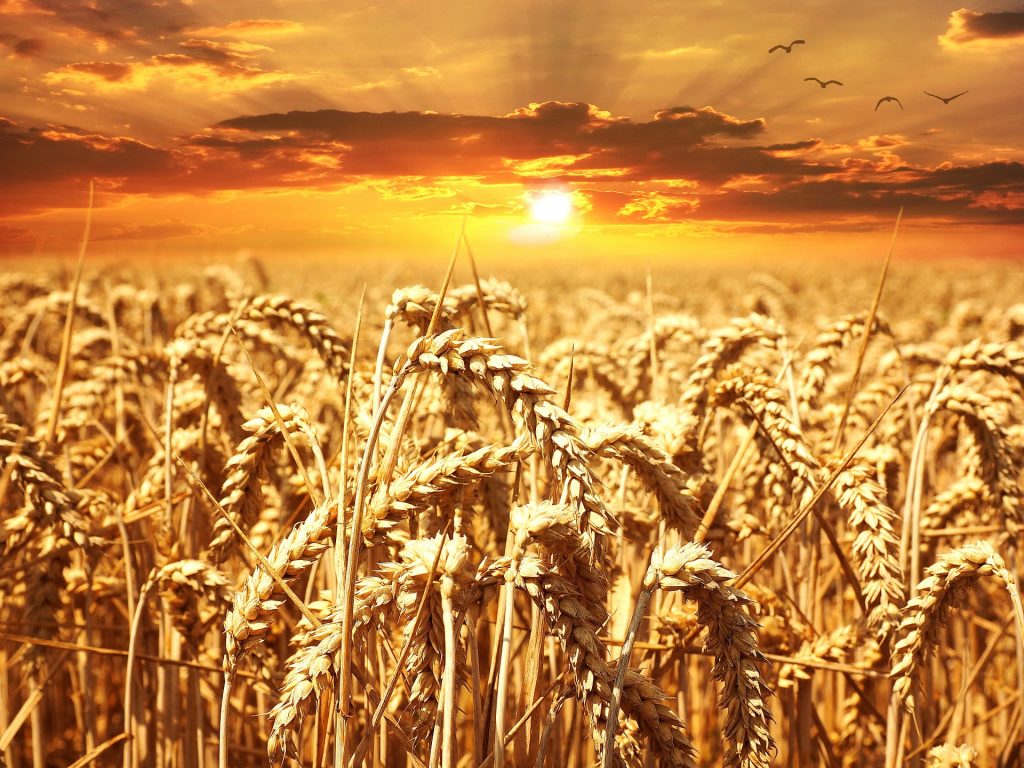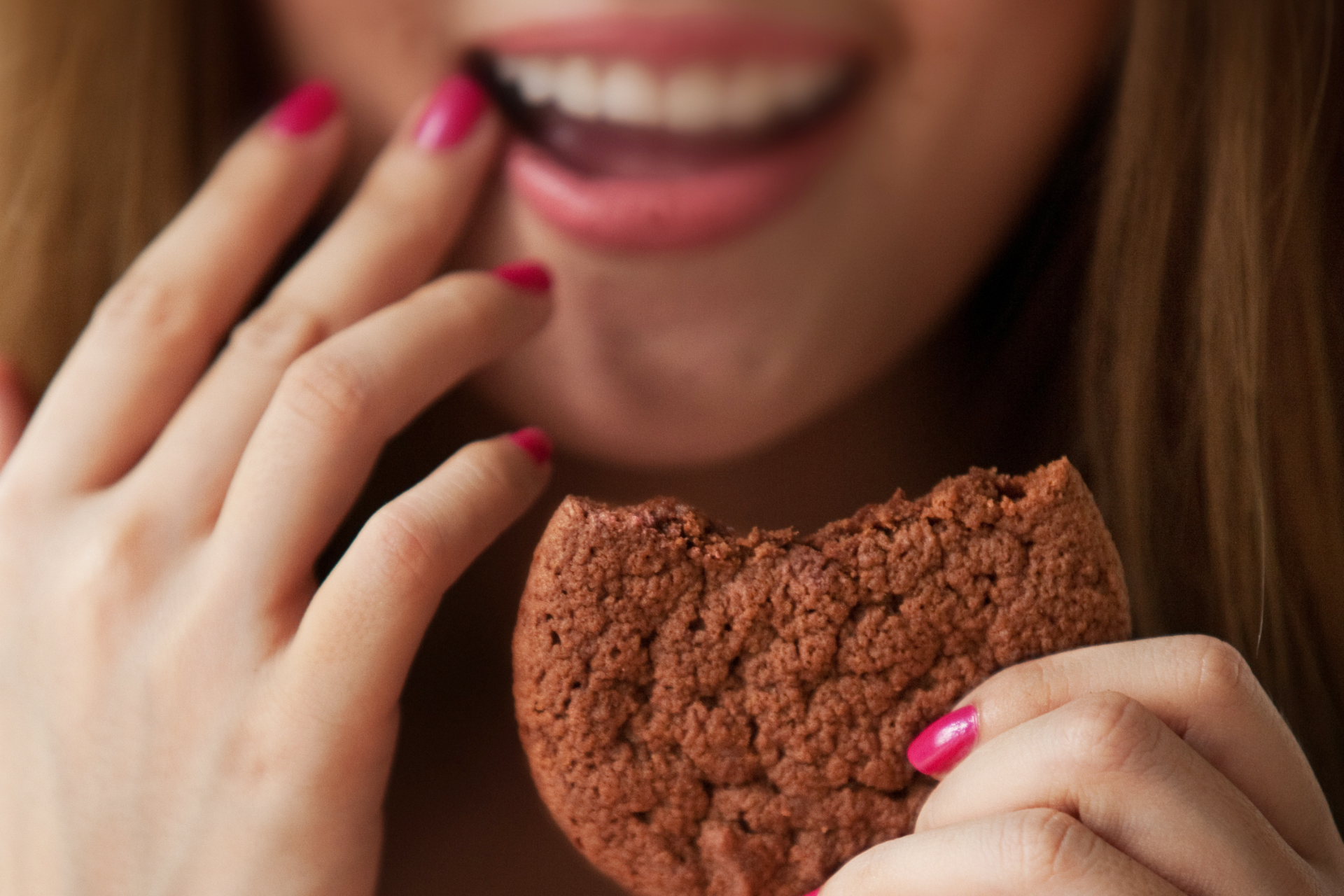Is wheat, gluten or carbohydrates the problem?
Before we dive in to this topic, I should warn you that the amount of carbohydrates one should consume for optimal health is a controversial topic.
Carbohydrates found in grains increase blood sugar and if consumed in large portions, like many North American diets, can lead to insulin resistance. High glycemic foods, like wheat can make your body store belly fat and contribute to inflammation as well as to the cascade of obesity and diabetes. High carbohydrate intake can definitely be a problem.
Most grains in our culture have been highly refined and processed. And most are loaded with toxins. Just take a look at all of the supermarket walls that are filled with thousands of different wheat and corn products intended to resemble food.
The problem is that modern grains has been formulated to be much different than the ones our grandparents ate. Today, FrankenWheat is scientifically engineered to contain a Super Starch, Super Gluten and Super Drug that makes wheat fattening, inflammatory and highly addictive to make you crave and want more. A very clever marketing plan by the way.
Wheat is the major source of gluten in our diet, today. Gluten, the protein found in wheat can trigger inflammation and obesity and can lead to celiac disease. Gluten (the Latin word for glue) holds breads together and makes it rise. It’s properties interfere with the absorption of nutrients, including other foods consumed in the same meal.
Reactions to the undigestible gluten glob in your gut can cause constipation, diarrhea, nausea and erosion of your small intestine. And don’t think that eating the gluten free junk foods will save your intestines or ward off obesity or diabetes. These highly processed gluten free foods generally have a high glycemic load. Just because it’s gluten free, doesn’t mean it is healthy.
A grain of truth
Wheat, once referred to as the staff of life, is now one of the most common allergens, that wreaks havoc not only on our digestive systems but also contributes to moodiness & depression.
When grains (which are merely carbohydrates) enter the body they are broken down into glucose (a nice title for sugar). Any glucose that is not used immediately is stored as fat to be used later as fuel. Since we don’t often face famine in our culture today, we don’t often get the chance to use up these excess stores and fat just accumulates.
The excess consumption of carbohydrates (largely found in grains), not only contributes to inflammation, blood sugar imbalance & the insulin response, it jacks up cortisol & adrenaline production, putting an extra load on the endocrine (hormone) system & immune systems.
Sadly, most grains today have been refined and stripped of any beneficial bran and germ components to lengthen shelf life. The enriching process attempts to add back the multitude of nutrients that were lost or greatly reduced in the refining process, leaving us with fragmented food and fewer usable, absorbable, nutrients.
The un-digestible proteins in grains (like gluten) break down the microvilli (the hair-like lining) in your small intestine, allowing particles of food to eventually enter your blood stream causing allergies, inflammation and other autoimmune conditions. A condition known as Leaky Gut.
Grains contain Phytic Acid, which prevents absorption of calcium, magnesium, iron and zinc. When grains have been sprouted, phytic acid is broken down and nutritional content is increased BUT most grains today are NOT sprouted.
Clearly, you can see that grains can affect your entire well-being, if you are not selective.
One of the best things you can do for your health
Much of the Standard American Diet (SAD) contains bread, baked goods and grain products. Eliminating grains (at least temporarily) from your diet is an excellent step for improving overall health.
Taking a break from all of the heavily processed grain products will allow your intestinal track some much needed relief from attempting to digest this FrankenFood. It will also allow you to notice how your body responds and how you feel when you re-introduce it back into your diet.
When you’re ready to remove grains from your diet, remember that should include; breads, pasta, pastries, desserts, rolls, wraps, crackers, cereals and any corn or grain products or their derivatives.
Satisfy your mind and your palate by eating more plant foods in their whole natural state like vegetables, fruits, nuts, seeds, legumes and lean animal proteins instead. These are all gluten free and are in their natural state.
When eliminating something from your diet, I highly suggest focusing on all the amazing foods you CAN eat vs. those that you can’t.
Going grain-free will allow you to see how your body and digestive system respond. You never know, you might find new foods and ways of eating that you love, along with dropping some of the belly bloat.
Here’s my green light to going grain-free (even if it’s just for a month),





